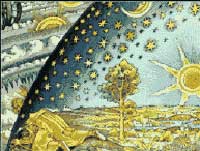 |
|
 |
| |
| |
| |
| |
| |
| |
| |
Campus: Kensington Campus
| |
| |
Career: Undergraduate
| |
| |
Units of Credit: 6
| |
| |
| |
| |
Indicative Contact Hours per Week: 3
| |
| |
Enrolment Requirements:
| |
| |
Prerequisite: 30 units of credit at Level 1
| |
| |
Equivalent: HPST2111, HPSC2100
| |
| |
| |
| |
| |
| |
| |
| |
| |
 |
|
 |
Subject Area: History and Philosophy of Science
This course can also be studied in the following specialisation: History
This course examines fundamental issues and concepts in the history and philosophy of science, through historical study of the origins of modern European science, with particular focus on the lives and work of Copernicus, Galileo, Kepler, Descartes, and Newton. The religious, cultural and economic factors shaping the new science are analysed.
In examining case studies such as the conflict between Galileo and the Catholic Church, emphasis is placed on critical historical thinking and use of tools from the sociology of scientific knowledge, as it has developed from the work of Thomas S. Kuhn and his successors. Fundamental issues in the history and philosophy of science—such as the theory-loaded nature of scientific facts, the existence and role of scientific method, the process of scientific discovery and whether there really are scientific revolutions—are critically analysed and applied to the historical case study material.

